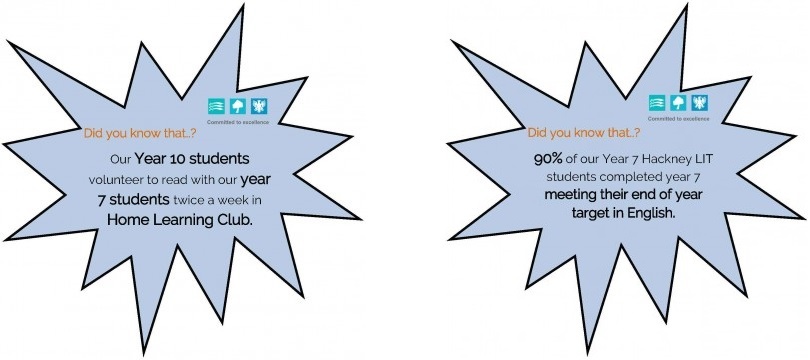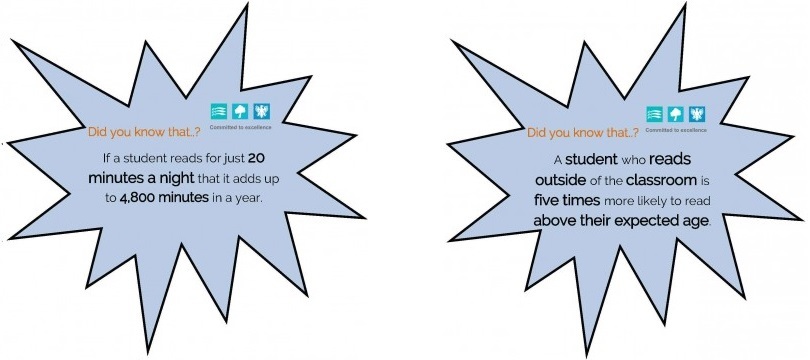Literacy

Northolt High School and The National Literacy Trust
Helping with reading at home
How to encourage your child to read:
1. Read yourself! Show a good example by talking about the reading you do at work and at home. Let your child know that reading is an important part of your life.
2. Keep books safe. Make your child their own special place to keep their books in their bedroom.
3. Visit your library – it’s free to join! As well as taking out story books, use visits to the library as a time to find books about your child’s hobbies and interests.
4. Make time to read. Set aside a time for reading for the family – after school or before bedtime. Encourage independent reading but don’t be afraid to still tell a bedtime story.
5. Don’t just read books. Encourage your child to read newspapers, TV guides, comics and magazines. Ask your child to find out information from the Yellow Pages, the Internet, cookery books, etc.
6. Let your child read with younger children. Encourage them to read to other members of the family.
7. Keep in touch with school. Make sure your child swaps their home reading books regularly at school and try to make a regular time slot of about 10 minutes to hear them read.
8. If English is not your family’s first language: You can buy dual language books. You can talk about books and stories in any language.

How to help with reading:
1. Be positive! Praise your child for trying hard at their reading. Let them know it’s all right to make mistakes.
2. Give them time. Let them make a guess before you tell them the word. Let them read to the end of the line before correcting their mistakes. It doesn't matter if you have to tell them the word sometimes.
3. Spot words inside words. Help them to spot words they know within larger more complicated words.
4. Let them read their favourites. Don’t worry if they only read one kind of book. If they are really stuck, ask the librarian or teacher to suggest something else they might like.
5. Make the story come to life. Encourage your child to read with expression. This will help them read more fluently.
6. Ask lots of questions about the story. What would you have done if you were…….? Does this book remind you of anything that has happened to you? Can you guess what is going to happen next?
7. Use a dictionary. Buy a simple dictionary and use it to check the meanings of new words.
Activites to try at home
Make a scrap book with your child about their favourite star, group or team. Let them cut pictures out of magazines and papers and write their own captions.
Buy a book of crosswords and wordsearches and try to solve them together. Make up your own puzzles to try out on family and friends.

